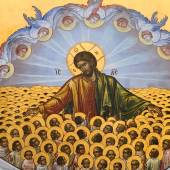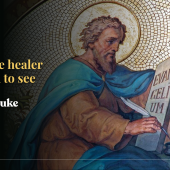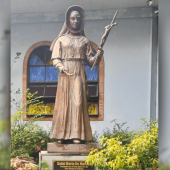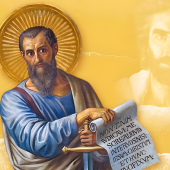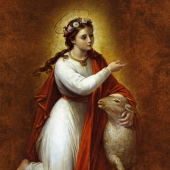Impulsive love, the guidance of Saint John of God
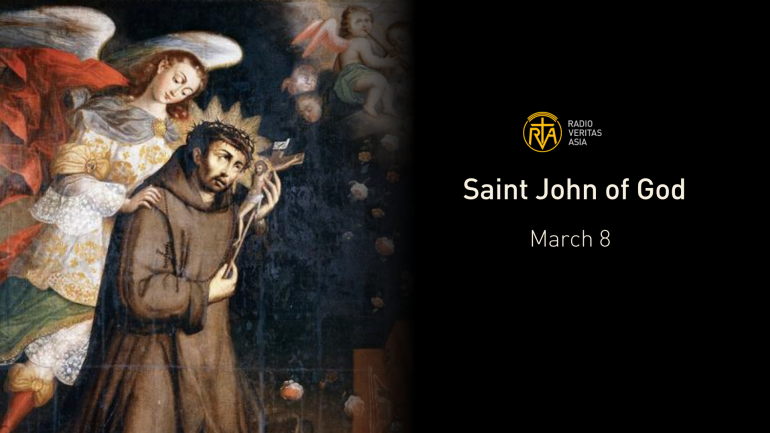
John did what his heart told him to do from the time he was eight years old until the day he died. The hard thing for him was to quickly follow the Holy Spirit's lead instead of his own human urges. But John didn't act on impulse, like many people do. He committed to his decision, no matter how hard it was along the way.
Saint John of God, or João Duarte Cidade, was born in Montemor-o-Novo, Portugal, on March 8, 1495. Even though they were poor, his parents were devout Christians. At the age of eight, John doesn’t get to live carefree like other children his age. A traveling priest excitedly discussed with John the upcoming times in 1503, when new worlds were being discovered.
He was eight years old at the time. He ran away from home to go on a trip with the priest. He never saw his folks again. They begged from village to village until John got sick. The manager of a big estate took John in, cared for him, and helped him recover. John worked as a mountain shepherd until he was 27 years old. John left to fight in the Spanish army against France because he felt he had to marry the manager's daughter, whom he loved like a sister.
During his time as a soldier, he wasn't exactly a model of holiness. He joined his friends in gambling, drinking, and stealing. One day, near the French lines, he fell off a stolen horse. Fearing capture or death, he made a snap decision about his life.
Upon his return, he followed through on his spur-of-the-moment vow, confessed, and drastically changed his life. John's comrades didn't mind too much that he was repenting, but they despised that he wanted them to give up their pleasures as well. Thus, they took advantage of his impulsive personality to deceive him into abandoning his job under the guise of helping a stranger. They stripped and beat him before saving him at the last moment, then dismissing him from the service.
He pleaded his way back to his foster family, where he worked as a shepherd, until he discovered that Muslims were reentering Europe and initiating a new battle. He left, but as the war ended, he made the decision to look for his true parents. He was devastated when he found out that both of his parents had passed away without him.
As John journeyed on, he encountered a family in distress over their impending exile to Africa due to political intrigues. John, being an impulsive decision-maker, abandoned his original plan and volunteered to help serve the family. He kept them alive by nursing them and earning money to feed them. During this time, John’s job was hard, cruel work, and individuals who labeled themselves Catholics beat and abused the workers. John was so upset by Christians' behavior that it made him doubt his faith. Despite the priest's advice not to blame the church for everything they did and to go to Spain right away, John only returned home after the family he was taking care of received a pardon.
In Spain, he unloaded ships' goods during the day, went to churches and read spiritual books at night. His love of reading made him decide that he should share this love with other people. He quit his job to sell religious books and holy cards from town to town as a pavement vendor. When he was 41 years old, he saw something that took him to Granada. He ran a small shop where he sold books. Thus, he was also the patron saint of booksellers and printers.
After listening to John of Avila's famous sermon on repentance, the little bookseller became so consumed by thoughts of his sins that the entire town believed he had transitioned from mere eccentricity to insanity. Right after the lecture, John ran back to his shop, tore up any non-religious books he had, and gave away all of his money and religious books. People in the town and their kids teased him, made fun of him, and even threw rocks and mud at him while he was crying and wearing torn clothes.
John's friends escorted him to the Royal Hospital, where they placed him among the lunatics. At the time, everyone treated John the same: they tied him down and whipped him every day. His repentance had been going on for forty days, the same amount of time the Lord suffered in the desert. John Avila visited him and informed him of his relocation to a better part of the hospital.
John of God could never look at pain and not want to do something about it. Even though he was still ill, he got up right away to help the other sick people around him once he was free to move. The hospital was glad to have his unpaid nursing help, and they didn't want to let him go when he told them he was going to open his own hospital.
Even though John was sure that God told him to open a hospital for poor people who received awful service at other hospitals, everyone else still thought he was crazy. It didn't help that he chose to sell wood in the square to try to get funding for his plan. At night, he used his little money to feed and comfort poor people living in empty houses and under bridges. Initially, the whole streets of Granada were his first hospital.
A window sign that said "House to let for lodging of the poor" caught his eye, and within an hour, he had rented the house to move his nursing home inside. He rented it out without spending any money on furniture, drugs, or assistance. Then he returned to the streets to beg for money for beds. He carried his sick patients back on the same shoulders that had carried stones, wood, and books. After getting there, he treated their wounds, washed them, and fixed their clothes while he prayed at night.
His previous job as a seller aided him in begging for money. He yelled through the streets in a peddler's voice, "Do good to yourselves!" "Brother, do good for the love of God!" He gladly accepted clothing bits, coins, and other items.
Throughout his life, he endured criticism from individuals who disliked the idea that his impulsive love embraced anyone in need without first asking for identification information or character witnesses. As soon as he was able to move his hospital to an old Carmelite monastery, he turned the abbey hall into a shelter. Right away, his critics tried to shut him down by saying he was giving troublemakers too much attention.
When people said negative things about him, he always told them that the only bad person in the hospital was himself. Too often, his impulse to move right away when he saw a need got him into trouble. He once found a group of hungry people and ran into a house. He stole a pot of food and gave it to them. His good deed almost led to his arrest! He once discovered a group of kids dressed very poorly. He led them to a clothing store and gave them all new clothes. Since he did not have money to pay for everything, he took out a loan.
Still, his impulsive character, who always has a big heart for helping, saved a lot of lives. When the Royal Hospital was on fire, he saw many people just standing and staring, but John dropped everything and ran into the building to carry and lead the patients out. After saving the people, he also saved the blankets, sheets, and beds from burning because he knew how difficult it was to acquire them.
At that point, when a huge part of the building was on fire, the people thought of destroying the burning part in order to save the other parts of the hospital. However, John stopped them and separated the burning part with an axe. He succeeded, but accidentally fell off the roof. Everyone thought they had lost their hero, but John miraculously appeared out of the smoke, thus making him also the patron saint of the firefighters.
John continued his good deeds until he also became sick. But even his sickness did not get in the way of doing what he thought was good. When he heard that a flood was bringing valuable driftwood near their town, John got up to pick up the woods amidst the raging river. Accidentally, one of his companions fell into the river. Without any thought of himself being sick, John quickly jumped into the river to save the boy. Unfortunately, he failed, and he even contracted pneumonia. On March 8, his 55th birthday, John bid farewell to the same impulsive love that had guided his whole life.
Years passed, and those who believed in what he did to help the poor continued his legacy. The Holy See approved his followers, the Order of Hospitallers, in 1572 as the Brothers Hospitallers of Saint John of God.
Pope Alexander VIII canonized John on October 16, 1690, declaring him the patron saint of hospitals and the sick. The Minim Friars transferred his body from the Church of Our Lady to their hospital's church. They later built a church to house his remains, and on October 16, 1757, they transferred them, raising them to the rank of a basilica.
As of today, the Hospitaller Brothers of St. John of God continue their mission by being present in 53 countries around the world, operating more than 300 hospitals, services, and centers serving a wide range of medical needs, including mental health and psychiatry.
Radio Veritas Asia (RVA), a media platform of the Catholic Church, aims to share Christ. RVA started in 1969 as a continental Catholic radio station to serve Asian countries in their respective local language, thus earning the tag “the Voice of Asian Christianity.” Responding to the emerging context, RVA embraced media platforms to connect with the global Asian audience via its 21 language websites and various social media platforms.









